Tags
Adolfo Bioy Casares, Alice's Adventures in Wonderland, American, Ayn Rand, banned, Barrington J. Bailey, Bob Johnson, book collecting, Boston, Carlos Ruiz Zafón, Cold War, D. H. Lawrence, dust jackets, Ecclesiastes, English, Ernest Hemingway, F. Scott Fitzgerald, Frankenstein: or, Greek, Heinemann, Henry Miller, Holden Caulfield, Houghton Mifflin Company, J. D. Salinger, J. R. R. Tolkien, J. Willard Marriott Library, Jack London, James Agee, Kurt Vonnegut, literature, London, Luise Putcamp, Luise Putcamp Johnson, Margaret Atwood, New York, novel, Pan, Philip K. Dick, protest, rare books, Ray Bradbury, reading, rebellion, Robert A. Heinlein, Robert Hersel Johnson, Scribner, Second World War, Special Collections, the 100 list, The Adventures of Tom Sawyer, The Great American Read, The University of Utah, Thomas Wolfe, Travels into Several Remote Nations of the World, Ursula K. LeGuin, Wilkie Collins, William Kennedy, William Saroyan
“It’s up to you how you waste your time and money. I’m staying here to read: life’s too short.”
― Carlos Ruiz Zafón, The Shadow of the Wind
Rare Books salutes The Great American Read by inviting you to visit the Special Collections Reading Room on level 4 of the J. Willard Marriott Library to hold first editions of some of the classics included on the 100 list.
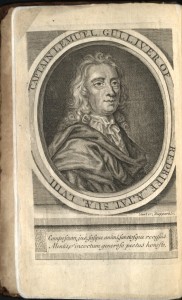
Travels into Several Remote Nations of the World
“My hours of leisure I spent in reading the best authors, ancient and modern, being always provided with a good number of books…”
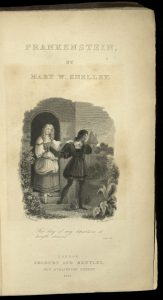
Frankenstein: Or, the Modern Prometheus
“My education was neglected, yet I was passionately fond of reading.”
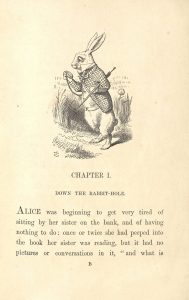
Alice’s Adventures in Wonderland
“‘…and what is the use of a book,’ thought Alice ‘without pictures or conversation?'”
“It consisted in a peculiar bird-like turn, a sort of liquid warble, produced by touching the tongue to the roof of the mouth at short intervals in the midst of the music—the reader probably remembers how to do it, if he has ever been a boy.”
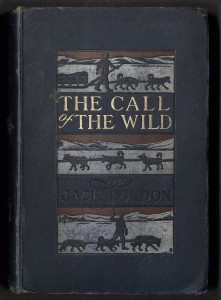
The Call of the Wild
Jack London (1876-1916)
London: Heinemann, 1903
First English edition
PS3523 O46 C3 1903b
“But especially he loved to run in the dim twilight of the summer midnights, listening to the subdued and sleepy murmurs of the forest, reading signs and sounds as a man may read a book, and seeking for the mysterious something that called — called, waking or sleeping, at all times, for him to come.”
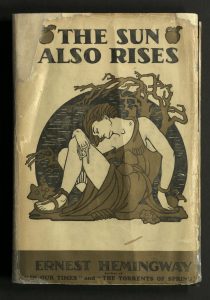
The Sun Also Rises
Ernest Hemingway (1899-1961)
New York: Scribner, 1926
First edition, first issue
PS3515 E37 S9 1926a
“’No; that doesn’t interest me.’
‘That’s because you never read a book about it.’”
The Sun Also Rises was published on October 22, 1926 in a first printing of 5090 copies. A second printing of 2000 copies was issued in November of that same year. By mid-December both printings had sold out. By 1961 the novel had sold more than one million copies.
The first issue of the first printing is noted by these factors: “stopped”, p. 181, line 26 is misspelled “stoppped;” and a quote from Ecclesiastes regarding vanity is on page [viii].
The University of Utah copy has the first issue dust jacket with the error “In Our Times” instead of “In Our Time” on the front panel. This is one of the two most rare and desirable dust jackets in twentieth-century American literature book collecting, the other being the dust jacket from the first issue of F. Scott Fitzgerald’s The Great Gatsby. The dust jacket was printed in gold, black, and tan, with a gold apple on either side of the title and beneath it the figure of a drowsing woman clothed in the style of Greek antiquity. A Pan’s pipe lay near her sandaled foot and another gold apple rested in the palm of her left hand. At the bottom, Hemingway was identified as the author of In Our Times [sic][ and The Torrents of Spring.
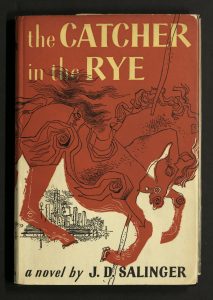
Catcher in the Rye
J. D. Salinger
Boston: Little, Brown, 1951
First edition
PS3537 A426 C3 1951
“What really knocks me out is a book that, when you’re all done reading it, you wish the author that wrote it was a terrific friend of yours and you could call him up on the phone whenever you felt like it. That doesn’t happen much, though.”
A twentieth century American classic, Catcher in the Rye was extremely popular at the time of its publication, especially with young readers who strongly identified with the yearning for lost innocence by the novel’s narrator, Holden Caulfield. The novel added to a budding literary, musical, and artistic theme of youthful rebellion.
Catcher, however, raised a gentle voice of protest over growing militant rhetoric. Published after the triumphant yet devastating Second World War and during a pseudo-peace labeled “the Cold War,” youth in the fifties began protesting what they viewed as the failures of the adult world. Anger, contempt, and self-pity were prevalent in many works of the era, but Catcher captured a much more telling view of the era’s stresses with it’s decent but completely and genuinely perplexed teenager.
The book has been banned repeatedly from various school curricula from the time it was published to the present day.
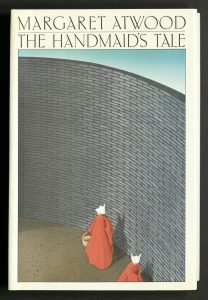
Handmaid’s Tale
Margaret Atwood
Boston: Houghton Mifflin Company, 1986
First American edition
PR9199.3 A8 H3 1986
“On the floor of the room there were books, open face down, this way and that, extravagantly”
The Rare Books staff offers these suggestions for summer reading, based on the criteria The Great American Read used to gather its 100. The five of us each chose five books. From those the editor savagely (as editors do) and without apparent rhyme or reason (and she will never tell) whittled the list down to this, in alphabetical order by author. Copies may be found in the General Collection on level 2 of the J. Willard Marriott Library.
James Agee, A Death in the Family (1957)
Ray Bradbury, Dandelion Wine (1957)
Adolfo Bioy Casares, The Invention of Morel (1940)
Wilkie Collins, The Woman in White (1859)
Philip K. Dick, A Scanner Darkly (1997)
Robert A. Heinlein, Starship Troopers (1959)
M. M. Kaye, The Far Pavilions (1978)
William Kennedy, Ironweed (1983)
D. H. Lawrence, Lady Chatterley’s Lover (1928)
Henry Miller, Tropic of Cancer (1934)
Ayn Rand, The Fountainhead (1943)
William Saroyan, The Human Comedy (1943)
J. R. R. Tolkien, The Hobbit (1937)
Kurt Vonnegut, Cat’s Cradle (1963)
Thomas Wolfe, You Can’t Go Home Again (1940)
What do you suggest?

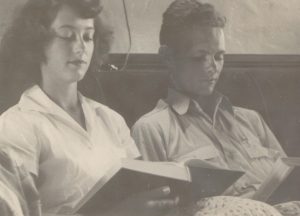
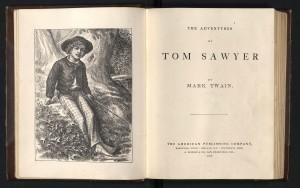
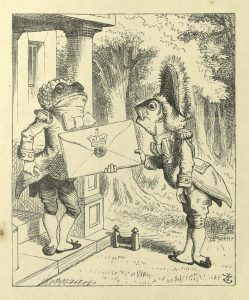
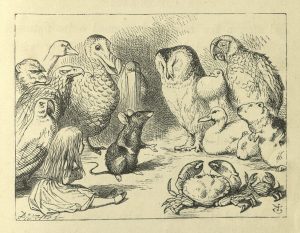
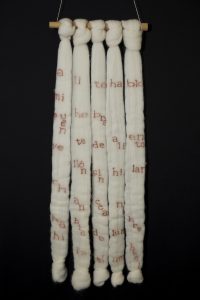
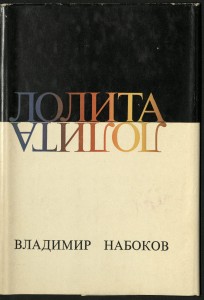
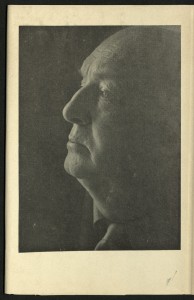

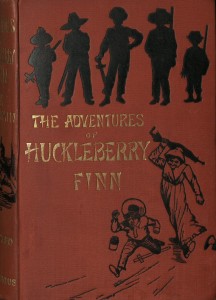
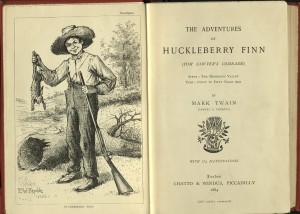
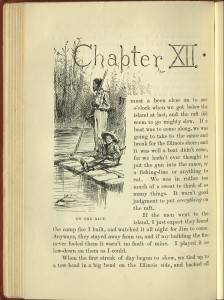
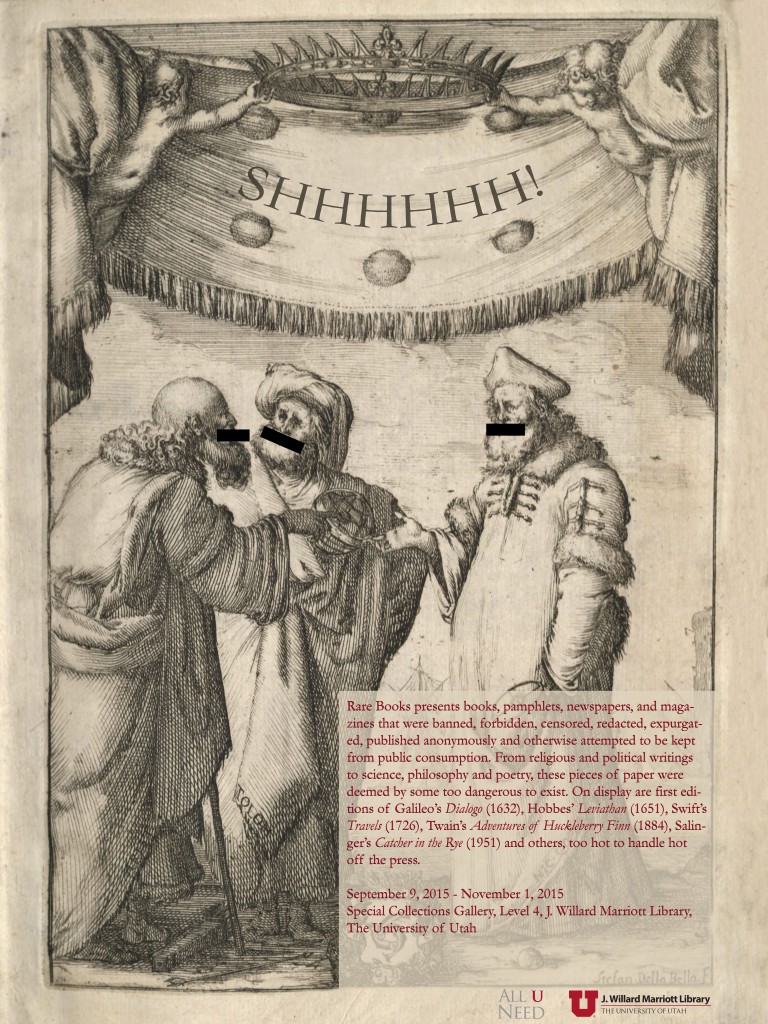
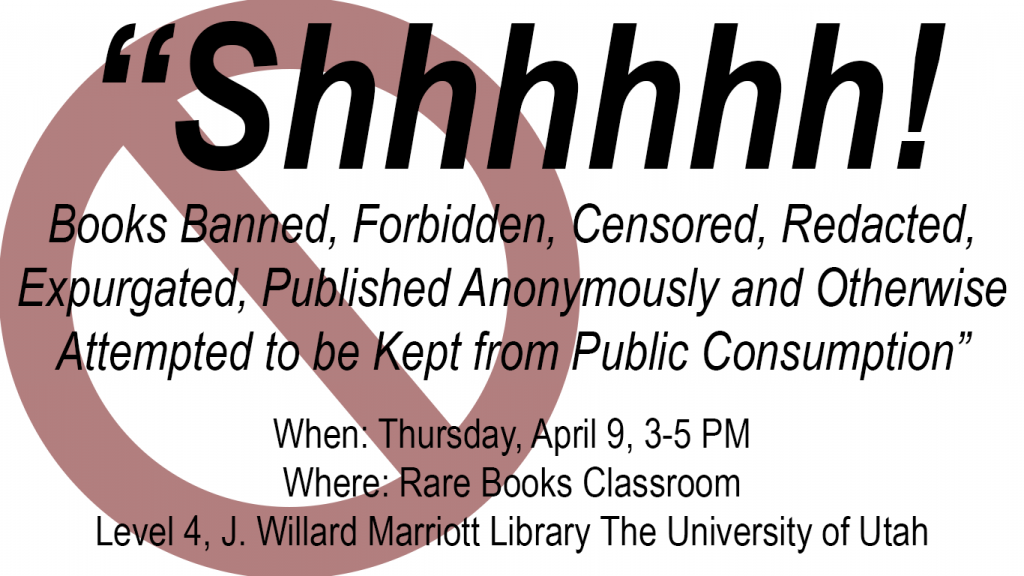



You must be logged in to post a comment.